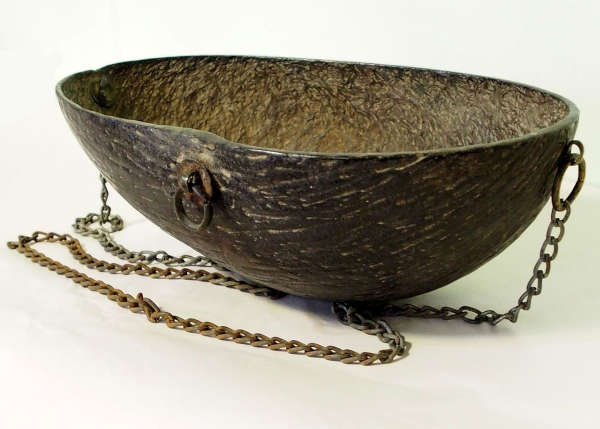FWP:
SETS == KYA
WINE: {49,1}
WINE-HOUSE: {33,6}
For background see S. R. Faruqi's choices. This verse is NOT one of his choices; for the sake of completeness, I've added it myself. For more on Ghalib's unpublished verses, see the discussion in {4,8x}.
Since the kab provides a variant of the 'kya effect', the first line can be read either in the obvious way, as a negative rhetorical question ('When do they? Why, never, of course!'), or else as a genuine question ('Really, when do they?'). By no coincidence, both mesh elegantly with the second line. In the former case the gourd-planting becomes a sign of mad desperation on the part of the faqirs; they may be seeking no more than a symbolic chance to beg for alms in the vicinity.
In the latter case, however, it perhaps might suggest an actual answer to the question, as Gyan Chand maintains. He claims that wine is actually made from calabash gourds of this kind; I can't find any evidence for this. But Bekhud Mohani makes the same claim in {196,2}, so perhaps it occasionally happened. Or at least, it might have been seen as possible.
In any case, such gourds are certainly used as containers for liquids, including wine. So perhaps the answer to the question in the first line is given by implication in the second line-- by the time the addressee (whoever it might be) has planted a gourd by the wine-house door, and it's had time to become full-grown and then to be made into a wine-carrier, faqirs might be able to get some wine in it given as alms by the denizens of the wine-house (including perhaps even the beloved). Or perhaps to drink water from a gourd nourished in the very soil around the wine-house would be as close as the faqirs can ever expect to get?
After all, in {196,2} the assumption is that the very presence of gourd plants in the garden suggests the garden's longing for wine.

Asi:
When is there access for faqirs to the presence of the wine-drinking idol? The only means is that a gourd-plant would be sown near the wine-house door. Since a gourd is used in wine-drinking, it will arrive there; and since a gourd is also used by faqirs, it's as if something belonging to faqirs would reach the wine-drinking idol. Otherwise, there's no prospect of access.
Or else this: since the gourd remains near the faqirs, when it grows, and passes through the wine-house door into the wine-house itself, then it will have access to the wine-drinking idol, and then by means of it the faqirs will obtain a share.
== Asi, pp. 131-132